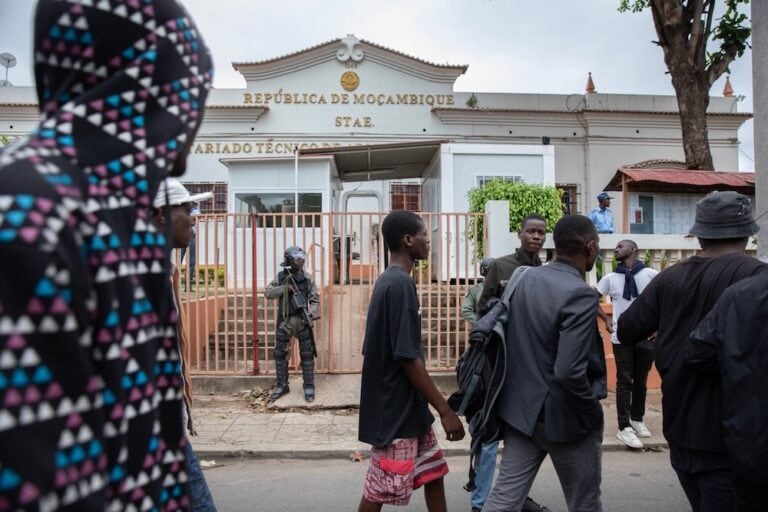MISA spent over three years in lengthy consultations, drafting a bill to establish the necessary procedures so that the right of the public to information becomes a reality.
(MISA/IFEX) – 30 September 2010 – The Mozambican Parliament, the Assembly of the Republic, has assured the Mozambican branch of the regional press freedom body Media Institute of Southern Africa (MISA-Mozambique) that a Bill on Freedom of Information will be debated in the near future.
Announcing this on 28 September 2010, the director of MISA-Mozambique, Alfredo Libombo, said that all three political parties in the Assembly (the ruling Frelimo Party, the former rebel movement Renamo and the Mozambique Democratic Movement, MDM) were in agreement on this, and that the assembly’s bill will be based on a draft that MISA presented to Parliament almost five years ago, in November 2005.
Libombo said that MISA had recently held meetings with all three parliamentary groups “who confirmed that the bill on the Right to Information has been taken out of the drawer where it was put five years ago and could be debated in the next sitting which begins in October 2010 or in the first parliamentary sitting of 2011”.
The announcement follows the formation in August 2010 of an alliance of about 20 Mozambican civil society organisations, headed by MISA, set up to persuade the Assembly to take up the issue of access to official sources of information.
“This is a battle we have been fighting since 2001, and it seems that we are now beginning to feel the desired effects”, said Libombo.
MISA spent over three years in lengthy consultations, drafting and redrafting a bill to establish the necessary procedures so that the right of the public to information, enshrined in the Mozambican constitution, becomes a reality.
The Bill lists a large number of items which all bodies of the public administration must make available to citizens – including their internal norms, regulations and instructions, their budgets and reports on budget implementation, all licenses or permits that they issue, the details of all contracts that they sign, and the results of any audits.
If this Bill becomes law, citizens will be able to consult all official documents free of charge and take copies of them. Requests for such access may only be refused if the matter concerned affects national security, if it seriously damages the fight against crime or the administration of justice, if it reveals government policy prematurely, if publication seriously damages the legitimate commercial interests of third parties, or if it violates the private life of others.
The Bill contains public interest clauses which could override claims of national security or commercial secrecy – for example, where public health, environmental dangers, or violation of human rights are involved.
Under the Bill drafted by MISA, requests for information must receive a response within 10 days. Any refusal to grant access must be explained, and may be appealed.


